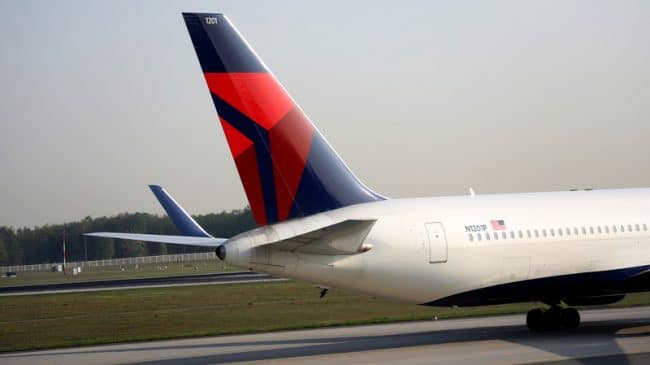Dear Ed Bastian,
Delta Airlines’ mid-July statement that it no longer opposes converting the FAA’s Air Traffic Organization into a self-funded nonprofit corporation is welcome news. However, numerous false or misleading statements about air traffic control corporatization made by high-level Delta officials in 2016 are still being cited by opponents, jeopardizing enactment of legislation Delta is now fully supporting. It is incumbent on Delta to repudiate these false statements, rather than letting them continue to be used as propaganda weapons by the Aircraft Owners and Pilots Association (AOPA) and other opponents of air traffic control reform (ATC).
The worst of these claims were included in a Feb. 1, 2016, Delta “study” and a Feb. 2 Delta letter to Rep. Bill Shuster (R-PA), chairman of the House Transportation and Infrastructure Committee and Rep. Peter DeFazio, ranking member of the House Transportation and Infrastructure Committee.
Here are those claims, along with factual rebuttals.
Delta Claim: Canadian flyers faced a 59 percent increase in ATC fees after Nav Canada took over air traffic control.
Fact: Nav Canada charges airlines, not passengers. The company’s ATC fees have decreased by 40 percent (adjusted for inflation) over its 20-year history, thus far.
Delta Claim: There is no analytical data comparing public vs. private ATC performance.
Fact: International data from the Civil Air Navigation Services Organization(CANSO) found the 2016 cost per IFR flight hour (in domestic airspace) for Nav Canada was $335; the comparable number for FAA was $453, 35 percent greater.
Delta Claim: There is no quantitative data showing operational efficiency or improvements by Nav Canada, compared with FAA.
Fact: According to CANSO data, between 2005 and 2012, Nav Canada’s IFR flight hours per controller increased, reflecting increased productivity, while FAA’s decreased by 12 percent.
Delta Claim: According to the U.K. Airports Commission, ATC corporatization has led to reduced airline service between the North of England and London.
Fact: The Airports Commission report had nothing to do with air traffic control. Its focus was the negative impacts of lack of runway capacity at Gatwick and Heathrow airports, which is the responsibility of those airports, not the corporatized ATC provider, NATS.
Delta Claim: Canadian travelers are crossing the border to fly out of U.S. airports, due to the high ATC charges imposed by Nav Canada.
Fact: Canadians seek out U.S. airports due to the higher cost of Canadian airports, not ATC. Those airports must pay large and growing lease payments to the Canadian government; they also have passenger facility charges up to five times higher than those at U.S. airports.
Delta Claim: NATS received a taxpayer bailout following the large reduction in air travel after 9/11.
Fact: NATS is a public-private partnership, launched in 2001, in which the UK government owns 49 percent and the Airlines Group at that point owned 42 percent. NATS had issued debt to purchase the system earlier that year, but the collapse of North Atlantic air traffic post-9/11 cut its revenue sharply. To ensure the ability to make debt-service payments, both principal shareholders made capital contributions (increasing equity) to cope with the situation. Nav Canada, established in 1996, had more-robust finances but was also hit by reduced air traffic revenues. It instituted a temporary rate increase, later rescinded, and has built up a substantial reserve fund to cope with any future temporary decreases in traffic and revenue.
Overall, Delta’s public statements in 2016 falsely maligned two of the world’s leading air traffic control corporations. Delta also failed to inform readers that more than 60 countries have divested ATC from their transportation agencies since 1987, and all of these corporations are self-funded from ATC fees and charges. The International Civil Aviation Organization (ICAO) recommends organizational separation of ATC service provision from government air safety regulation, and the United States is one of the last developed nations still not in compliance. The proposed corporatization would put U.S. air traffic control in line with global best practice.
Delta’s repudiating its previous false and misleading claims would contribute to a more fact-based discussion of the pros and cons of ATC reform. It would undercut the current use of false claims by opponents of the much-needed reforms of the U.S. air traffic control system.
Sincerely,
Robert Poole
Director of Transportation Policy
Reason Foundation

